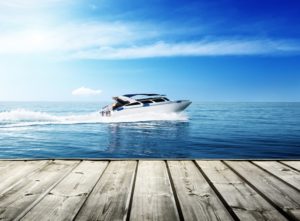
The most common questions related to the means test are about deductions. More particularly, they’re about what you can and cannot deduct on the bankruptcy means test. Most recently, I received a question from a client about deducting a boat payment on the means test. The couple had been making payments on the boat for 6 months. They were resigned to the fact that they would be returning the boat as they were planning to file a Chapter 13 due to tax debt.
The simple answer to their question is yes. The boat payment should be included in the means test. All expenses should be included in the means test. It may seem as if this is an “expense” that wouldn’t be allowed to qualify a petitioner for bankruptcy, but in fact, Section 707(b)(2) allows debtors to include monthly debt payments for any secured debt (even expensive, nonessential items like boats or motorhomes). Previous cases in which this issue arose resulted in the U.S. Trustee arguing that in this type of circumstance, the debtors should simply quit paying for unnecessary debts. The court did not agree with this line of reasoning. In this type of circumstance, debtors would have significant additional disposable income that could be used to fund a Chapter 13 plan if they stopped paying towards the nonessential items (i.e. an expensive house, boat, motorhome, etc.) But the court concluded that to require them to do so would be in contradiction to Section 707(b)(2) and the allowance of this type of expenditure.
Consider this Example Bankruptcy Case:
The petitioner had an $800,000 house with a monthly payment of $4,446. There was also a boat with a monthly payment of $760 and a motorhome with a monthly payment of $396. The combination of these expenses actually enabled the married petitioners to successfully fie for Chapter 7 bankruptcy. The court held that the monthly payments on the couple’s large, secured debts were allowed and they consumed a large part of the debtors’ income.
Many would believe their situation would result in being required to file for Chapter 13 repayment plan rather than Chapter 7. In considering the argument, the court pointed out that Section 707(b)(2) allows secured debt payments. Therefore to turn around and disallow the same payments under Section 707(b)(3) would not be appropriate unless there was some other evidence of fraudulent behavior on the part of the bankruptcy petitioners.
If you have questions regarding how your debt will affect bankruptcy filing and what type of bankruptcy is best in your situation, please get in touch with the southern California bankruptcy lawyers at Westgate Law today.
